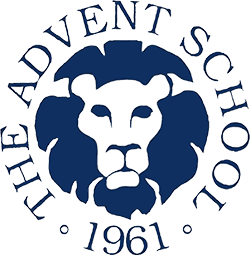Social justice in the classroom
The Advent School defines Social Justice as the active participation of all people in a society to equitably value and meet the needs of all individuals and communities.
Advent’s commitment to social justice is rooted in positive identity development and respect for both self and others. We use the four guiding questions in Rosetta Eun Ryong Lee’s Inclusive Classroom Practices to create, support, and uphold classroom environments in which all students can both learn and thrive to their full potential:
Do you see me?
Do you hear me?
Will you treat me fairly?
Will you protect me?
At Advent, social justice education is woven throughout the curriculum. In the classroom, students learn to listen deeply, ask thoughtful questions, share perspectives, and solve problems together.
Through their studies, they research both historical and contemporary social movements, sparking meaningful discussions about society and equity. These explorations encourage students to reflect on complex issues and imagine how they might use their own ideas and voices to create positive change.
We challenge students to be empathetic, self-reflective, and courageous learners who are prepared to take action and make a difference in an interconnected world.
Advent's Buddy program pairs upper and lower-grade students for cross-grade connections. Every student in pre-K through Second Grade is paired with an Upper School "buddy" for the duration of the school year. They enjoy regular in-school meetups, playground hangouts, and classroom activities, fostering a strong sense of community.
Social-emotional Learning
Research shows, and we feel strongly, that students are best able to access academics when they feel safe, cared for, and positive about themselves and their abilities. To this end, we believe that social and emotional learning (SEL) strategies must be taught as explicitly as we teach any other subject to our students and represent an integral part of our curriculum.
Our program is unique for a number of reasons. Most notably, we are intentionally integrating explicit SEL strategies with our study of Peaceful Changemakers. We define Changemakers as people who have made important positive changes in the world. Our goals are to help students see the power of small changes, that Changemakers are all around them, and that they too have the skills required to be agents of change in their own communities and in the world. Our students see the strategies that they learn in the classroom used by these people as they work to affect change. This reinforces for them that the strategies are not just designed to help make it through school -- they are to build a foundation for making a difference throughout their entire lives.
As a small independent school, The Advent School’s greatest resource is our passionate, creative, and collaborative faculty who all live, breath, and teach our mission each day. We are educating the next generation of students who will leave our school with a confident understanding of who they are as individuals, and the important role that they play as Changemakers in their communities and the world.
From the classroom
Using Games and Design Challenges to Teach Conflict Skills
Second grade is a time of new friendships, shifting social dynamics, and big feelings. Conflict naturally arises as children take risks, stand up for their ideas, and share their opinions. To help students build comfort and skills in these moments, Advent’s Second Grade faculty designed a playful, hands-on approach using cooperative games and design challenges.
In each activity, students work in mixed groups and face challenges that may include surprise changes or shifting leadership roles. These scenarios mirror the kinds of conflicts children encounter every day—giving them a safe and supportive space to practice problem-solving.
Students begin by brainstorming together before diving into 10–20 minutes of building or creating. Instead of focusing on winners, the emphasis is on teamwork, creativity, and collaboration. Afterward, students reflect on the process—both in group discussions and individually—helping them notice how their understanding of conflict is growing over time.
By engaging in these experiences, children learn that their voices matter, their ideas are taken seriously, and that conflict can be an opportunity for growth. Through reflection and practice, they are developing empathy, resilience, and confidence—skills that will serve them well in school and beyond.



